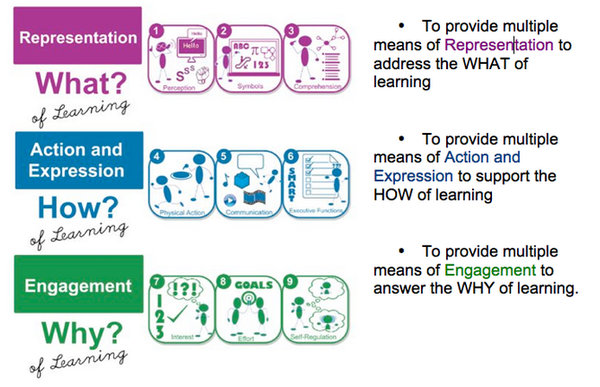Aim: To help educators to create workshops by using available literature benchmark ebooks from the Bibliodos project resources to enrich them.
Key Words: literature, workshop, search, Universal Design for Learning.
Prior Knowledge: None
Introduction
Literature has been an essential part of the foreign language curriculum for a long time. Literature is an authentic material; hence, most of its works are not created for the specific purpose of teaching a foreign language. Therefore, learners are exposed to genuine and undistorted language. When working with literary texts, students have also to cope with language intended for native speakers, gaining additional familiarity with many different linguistic uses, forms and conventions. In this Practice Sheet, we will present a walkthrough how to enrich your workshops using European literature benchmark books. What sources are available and what to have in mind to organize your educational approach according to the Universal Design for Learning.
Searching for the appropriate literature books of European literature heritage
Well-chosen books of European literature heritage provide exposure to the culture of their speakers by examining universal human experience within the context of a particular setting and the consciousness of a particular society. Linguistically, literature has the potential of serving as the central focus of the unit of study in the classroom. A number of different activities, based on the main language skills, may be developed around the reading of a literary work. While reading a text, learners get involved into the story, eager to find out what happens next. They feel close to certain characters and share their emotional responses. Bibliodos project’s main goal is to create the first library of books adapted from European heritage works (stories, illustrations, music) to promote language learning and facilitate access to writing for audiences with specific needs.
Using the ebooks provided by BIBLIODOS the educator can design an alternate method of representing information to complement their instruction so learners can better understand what they are learning. The educator can also add an outcome to an existent assignment to provide multiple means for a learner to demonstrate learning. To be more specific, thanks to the design of BIBLIODOS ebooks (they are divided in different levels and they provide a vast resource of images that accompany the narration), the educator can provide multiple means of:
- Representation to address the WHAT of learning.
- Action and Expression to support the HOW of learning.
- Engagement to answer the WHY of learning.

Figure 1: Universal Design for Learning and Student Success
Key points
Literature offers readers opportunities to:
- gain personal insights and knowledge,
- broaden their global understandings,
- appreciate and value differences,
- explore personal options, develop social awareness, and
- learn to read and write better.
When choosing texts for learners, you consider:
- richness of language,
- thematic significance,
- the interests and needs of their specific learner populations,
- the potential for powerful student engagement and rich conversation,
- their own passions for an author or title, and
- a particular pedagogical purpose.
Usage rights
The whole purpose of designing BIBLIODOS ebooks is to assist our learners in educating them in languages. Because of the huge range of the project we have to make sure that Public Domain rights are met when using such media in our workshops. All BIBLIODOS produced ebooks respect the European copyright guidelines and are Open Educational Resources (OER). That means that are freely accessible, openly licensed text, media, and other digital assets that are useful for teaching, learning, and assessing as well as for research purposes.
Having this in mind you can use BIBLIODOS project resources create material that is customized for your classes. Where most textbooks will have their strengths and weaknesses, BIBLIODOS OER material allows you to pull only strong material into your class.
BIBLIODOS OER material also represents an opportunity to have one’s own materials enhanced. By allowing material to be modified by other faculty around the world, an OER creator has the chance to see material used in ways never imagined.
Finally, BIBLIODOS OER material is important because it provides affordable material to students, allows faculty to enhance their own work, and provides faculty with content for classes.
Desirable Outcomes
At the end of this practice sheet, you will be able:
- To fully understand the usage rights
- To access and use the sources provided by the BIBLIODOS project;
- To use the most representative literature benchmark ebook for your workshop.
- Apply a range of criteria for choosing books appropriate for an individual learner or for an entire class.
- Determine several additional sources of literature to develop your classroom library.
- Consider ways in which to incorporate learners’ stories into your literature instruction.
- Include read-alouds as an integral part of your literature workshop or programme.
Additional Resources
- https://cae.appstate.edu/workshops-programs/workshops/udl-workshops
- https://www.learner.org/wp-content/uploads/2019/06/engaging-with-literature-a-workshop-for-teachers-grades-3-5-teacher-tool-Choosing-a-Good-Book-Modeling-Text-Choices.pdf
- https://www.learner.org/wp-content/uploads/2019/06/engaging-with-literature-a-workshop-for-teachers-grades-3-5-teacher-tool-Book-Buddy-Reading.pdf
- https://www.learner.org/wp-content/uploads/2019/06/engaging-with-literature-a-workshop-for-teachers-grades-3-5-student-activity-sheet-Student-Bookmarks.pdf
 40 minutes | For educators
40 minutes | For educators